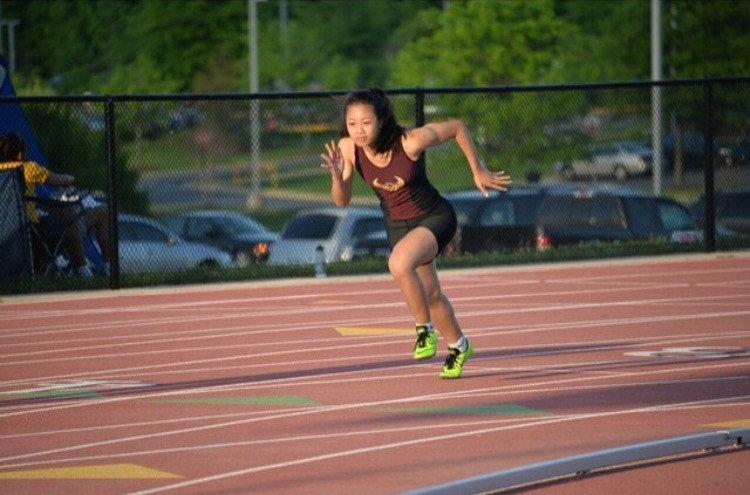Club Teams are Different Experience than School Sports
Karis Lee runs for her club team, in addition to sprinting for CHS.
February 22, 2017
Richard Ying flies down the ice looking to make a play. He fires towards the goal and scores his eleventh goal of the season. Ying, a versatile contributor to the CHS Varsity I hockey team as a senior, is in his first season playing for CHS in over two years due to club team obligations, and it has been hugely beneficial for the Bulldogs.
Being a talented athlete can be very rewarding, allowing student-athletes to play for club teams outside of school, providing the opportunity to get better and gain more exposure from the higher levels of their respective sports.
“I get to compete amongst some of the fastest girls in the country with my club team,” sophomore Karis Lee, a sprinter for the CHS Track & Field team, said.
Some athletes like Lee compete for club teams in the offseason in order to stay in shape, but the level of competition can also be much higher, making the sport more competitive. Club teams also provide the opportunity for athletes to play with other teammates and friends.
“It is very cool to be able to play on the school team and play with my friends at the same time,” sophomore Michael Janis, a varsity basketball player, said. “I am lucky to have the experience of playing with both teams.”
Ying found that it was difficult to keep his energy levels up playing for multiple teams, but also believes that it helped him improve his game.
“Playing for two teams made me play better because of the extra practice and exposure to the ice,” Ying said. “However, at times it was kind of exhausting having practices in the afternoon and then again in the morning the next day. I did not get much sleep during the week.”
Competing for club teams can help athletes increase their opportunities to play at a higher level and compete against stronger competition than they may face on their respective school teams.
“I have to miss some practices and games for my school team because of commitments to my club team,” senior Andrew Kurapov, a hockey player, said. “If there are ever conflicts, my club team comes first.”
On the other hand, athletes can injure themselves while playing for other teams, putting their school seasons in jeopardy. While there are risks and sacrifices that come with competing for teams outside of school, it is beneficial to play for multiple teams, as in the long run it helps the athlete improve and in turn, contribute more to their respective school teams because of that club exposure.
“I do not like to think that I get exhausted because I love playing, and when I’m on the ice, I could stay there forever, so I love playing for multiple teams,” Kurapov said.


